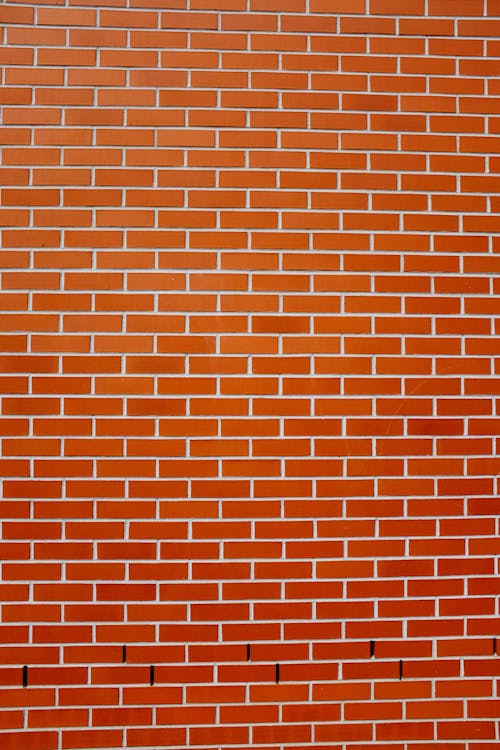How many bricks do I need for my brick wall?
If you are wondering how many bricks you do need, it's always better to calculate it than to guess it. Otherwise, in all probability, you'll either run out of them, or you'll have too many left.
The first step you can do to determine the number of bricks you will use is to consider the surface you want to cover with them. To do it by yourself, you have to calculate:
- The area that a single brick covers;
- The size of the mortar joint; and
- The area of the wall.
You can work out how many bricks you need using this simple equation:
- L — Length of the wall;
- H — Height of the wall;
- l — Length of a brick;
- t — Thickness of mortar joint; and
- h — Height of a brick.
How many bricks per square foot of brick wall?
A brick wall needs approximately 5 bricks per square foot with the standard 7.5" × 3.5" bricks. We also need the same number of bricks per square foot with the standard size of 9.5" × 2.75" bricks. The larger the bricks are, the fewer bricks we need to cover a square foot.
How do I calculate the bricks I need?
To estimate the number of bricks:
- Decide on the mortar thickness you want to use and add it to the length of your brick.
- Add the mortar thickness to the height of your brick.
- Multiply these sums together to get the area of a brick with mortar on one side and its bottom.
- Divide your wall area by the product you got from step 3 to find your needed brick quantity.
How many bricks will I need to build a wall?
You will need approximately 38 bricks per foot length for an 8-foot wall if the bricks are the standard 7.5" × 3.5" bricks or 9.5" × 2.75" bricks with ²/₅" thick mortar joints. However, larger bricks take up a larger area, and means fewer bricks overall.
How much cement do I need for 1000 bricks?
You need approximately 120 kg (263 lbs) of cement for 1000 pieces of standard 9.5" × 2.75" bricks. Additionally, you will need around 0.4 cubic meters (0.54 cubic yards) of sand to mix with your cement to make a 1:5 mortar mix for your brick wall.
Example
Calculating the Weight of Bricks
The weight of a brick can be calculated using its volume and density. The general formula to calculate the weight is:
\[ \text{Weight} = \text{Density} \times \text{Volume} \]Density is the mass per unit volume of a substance, and for bricks, the density varies depending on the type of brick but is typically around \( 1.92 \, \text{g/cm}^3 \) for common clay bricks.
Calculating the Weight of a Rectangular Brick
If you have a rectangular brick, you can calculate its weight by finding its volume and multiplying it by the density of the brick material. The formula for the volume of a rectangular object is:
\[ V = \text{Length} \times \text{Width} \times \text{Height} \]Example:
If a brick has the following dimensions: Length = 19 cm, Width = 9 cm, and Height = 5 cm, the weight can be calculated as follows:
- Step 1: Calculate the volume: \( V = 19 \times 9 \times 5 = 855 \, \text{cm}^3 \).
- Step 2: Multiply the volume by the density: \( \text{Weight} = 855 \times 1.92 = 1641.6 \, \text{g} = 1.64 \, \text{kg} \).
Calculating the Weight of Multiple Bricks
For a stack of bricks, multiply the weight of a single brick by the number of bricks.
Example:
If you need 500 bricks, and each brick weighs 1.64 kg, the total weight is:
\[ \text{Total Weight} = 500 \times 1.64 = 820 \, \text{kg} \]Real-life Applications of Brick Weight Calculation
Calculating the weight of bricks has many practical applications, such as:
- Determining the load-bearing capacity for construction projects.
- Calculating transportation weight for bulk brick deliveries.
- Ensuring structural integrity in large-scale projects.
Common Operations with Brick Weight Calculation
Single Brick: \( \text{Weight} = \text{Density} \times \text{Length} \times \text{Width} \times \text{Height} \)
Multiple Bricks: \( \text{Total Weight} = \text{Weight of One Brick} \times \text{Number of Bricks} \)
Other Shapes: For non-standard bricks (e.g., hollow bricks), subtract the volume of empty space from the total volume before calculating weight.
| Brick Type | Description | Steps to Calculate | Example |
|---|---|---|---|
| Standard Brick Calculation | Finding the number of bricks required to build a wall. |
|
If a wall is 10m long, 3m high, and 0.2m thick, and each brick is 0.2m x 0.1m x 0.075m, then the number of bricks required is approximately \( 2000 \). |
| Brick with Mortar | Calculating the number of bricks needed while considering mortar gaps. |
|
If a brick is 0.2m x 0.1m x 0.075m and the mortar gap is 0.01m, the new dimensions are 0.21m x 0.11m x 0.085m, reducing the total brick count. |
| Brick Weight Calculation | Finding the weight of bricks for transportation or structural load estimation. |
|
If each brick weighs 3kg and 2000 bricks are needed, the total weight is \( 3 \times 2000 = 6000 \) kg. |
| Real-life Applications | Using brick calculations for construction planning and material estimation. |
|
If you need 5000 bricks, and each costs $0.50, the total cost is \( 5000 \times 0.50 = 2500 \) dollars. |










